1. Industrial Automation
Manufacturing automation has evolved dramatically since the first industrial revolution when all technology and equipment improvements sought to use and improve automation.
Reducing human involvement in repetitive and hazardous activities makes the production line safer, resulting in considerable cost savings for firms.
However, the investment and complexity of such automated equipment grow exponentially as factory automation raises the introduction of computer-aided design capabilities, such as three-dimensional modeling and simulation software, making it possible for businesses to resell decommissioned equipment with minimal effort.
In other words, they can sell their old devices at a significant discount while still making a profit. However, recent advancements in control systems and robotics make implementation simple and more efficient.
E1ectr0n is building collaborative Assembly Robots.
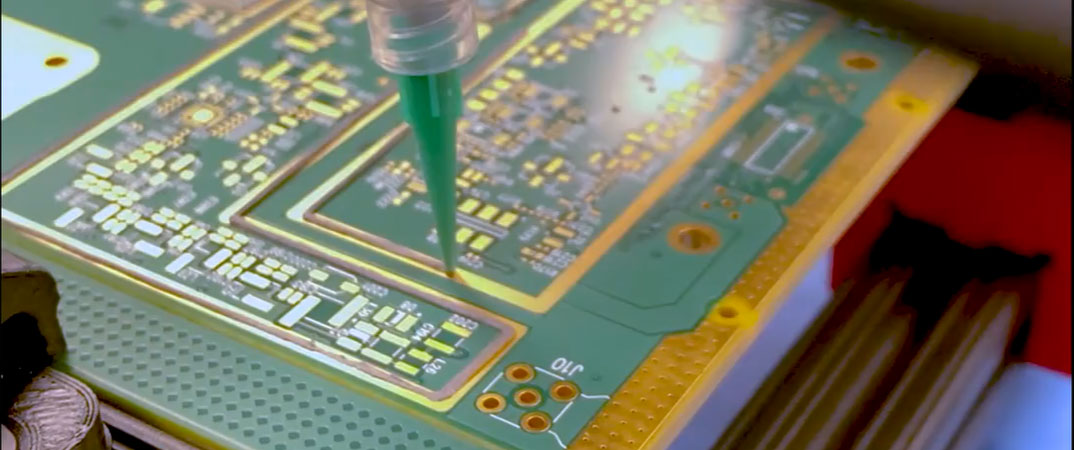
E1ectr0n is a US-based startup that creates robotic automation for low-volume manufacturing. pr0t0non the company’s six-axis arm is capable of carrying out repetitive assembly tasks through precision movements with a game controller or specific actions by coding on the keyboard, during which they are moved quickly through each step in the process repeatable adding/deleting steps as needed.
The system also offers an option to select between two methods: Precision movements and specific tasks through coding with a keyboard.
Shop floor logistics are automated through Shop Floor Logistics by Gideon Brothers.
Gideon Brothers is a Croatian company that creates scalable and simple-to-use intelligent material handling solutions to automate complex industrial processes. The vision module from the startup’s autonomous mobile robots (AMRs) is integrated into its devices.
Gideon Brothers’ autonomous mobile robots (AMRs) can see, understand, localize, and navigate across indoor or outdoor settings. The cameras and built-in sensors also provide data to the localization system, which creates dense 3D environmental models in real-time and updates them in real-time.
This enables AMRs to operate safely during interactions with people and equipment by adjusting to their movements and changing working conditions. The sophisticated visual perception technology automates material transport, lifting, and feeding across various product lines.
2. Additive Manufacturing
Additive manufacturing lets you turn a concept into a finished product quickly and efficiently. Computer-aided drafting (CAD) has removed the barriers to product creation, while additive manufacturing works around the materializing of unusual designs.
Nylon, for example, is a highly flexible material that may be molded into complicated shapes and patterns. Additive manufacturing allows us to fabricate intricate designs that would otherwise require significant production costs using standard manufacturing technologies.
However, current additive manufacturing methods do not qualify for mass production. Innovations in 3D printing are needed to reduce the cost of moving from prototype to production.
Xact Metal scales Affordable Metal 3D Printing.
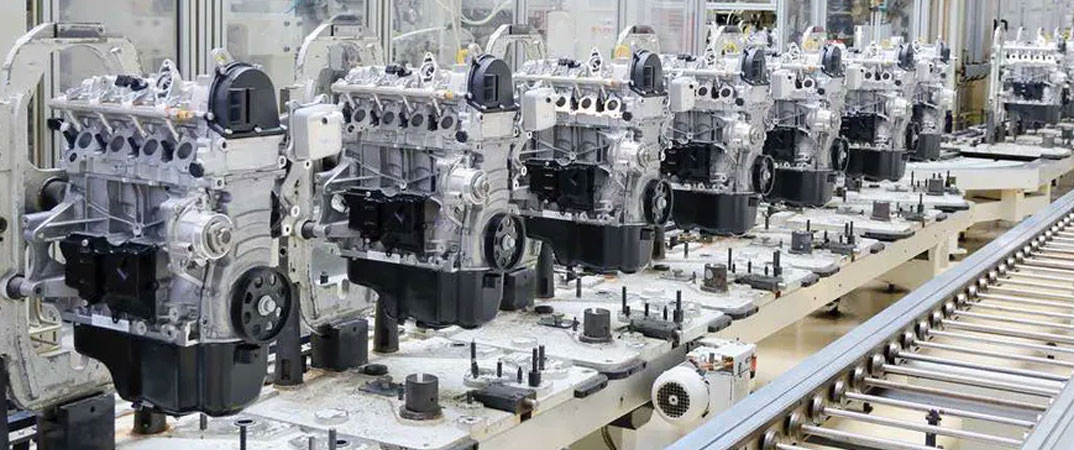
Xact Metal is a US-based company that provides 3D metal printing solutions. The firm uses laser-based metal powder-bed fusion technology to manufacture parts from 3D CAD designs by fusing thin layers of metal powder.
The printers’ high-speed digital galvanometer system allows faster metal additive manufacturing production rates. The solution 3D prints materials including titanium, steel, and aluminum in various alloys. It also includes software that allows for simple machine setup, control, and monitoring.
Nematx develops 3D Polymer Printing Technology.
Nematx is a Swiss company specializing in producing high-performance polymers through 3D printing. The Nematic 3D printing technology developed by the startup makes higher-performance end-use components than previous standards in 3D printing.
Liquid crystal polymer (LCP) is used as reinforcements in the polymer matrix, offering superior fire resistance. Because of its higher temperatures, high-strength steel is highly desired.
They’re also used in the aerospace, medical, and electronics industries to make components that must endure tremendous strain while retaining high strength. The technology has been integrated into a retrofit 3D printer head, making it easier to adopt into old equipment.
3. Artificial Intelligence
Modern manufacturing equipment offers businesses much data, including process and performance metrics. The analysis of this data generates insights into production optimization, maintenance scheduling, and asset management. Furthermore, manual processing of this information is time-consuming, and simple computer programs cannot recognize trends and draw logical conclusions.
AI emerges as one of the top manufacturing trends. AI improves manufacturing processes, including inventory management, supply chain visibility, warehousing cost reduction, and quality control. Predictive maintenance is another important application of AI that keeps manufacturing firms running smoothly.
Zeominds builds Predictive Maintenance Solutions.

Zeominds is an Indian firm that offers cutting-edge AI-based products and services. The company’s AI-based program, known as ZeoAnalyzer, allows for predictive equipment maintenance.
The software analyzes stream data from IoT sensors and finds evidence of failure and deterioration in performance, and this information provides notifications on time to avoid any catastrophic failures.
The software is designed for various industries, including oil and gas, power generation, water and wastewater, and manufacturing. Another advantage of employing ZeoAnalyzer is that it lowers operating costs and boosts factory productivity.
Quality Control using Computer Vision is available through Deevio.
Deevio is a German firm that specializes in end-of-line quality control solutions that use artificial intelligence and computer vision technology. AI-Box is an edge computer with an AI-driven inspection workflow that solves visual checks at the production line.
It sets up the cameras and activates light and camera flashes to produce images for a thorough surface examination. The AI of Deevio undergoes training on previously labeled pictures in contrast to the rule-based inspection done by humans. This technology automates visual inspections and captures important data for quality assessment.
4. Industrial Internet of Things
All data on the machine’s status and enabling changes in machine settings is displayed by programmable logic controllers (PLC) and human-machine interfaces (HMI). However, this equipment necessitates physical presence to gather vital information and make necessary adjustments, limiting shopfloor workers’ access to the production unit.
IIoT enables top management to have a bird’s eye view of the production process, current status, and performance. Also, it offers transparency and traceability of workflows for quality control purposes. The Internet of Things (IoT) is a trend in manufacturing that optimizes operations, lowers expenses, and improves worker safety.
IIoT also allows businesses to create digital twins of their production lines, which are helpful for monitoring shop floor activities and machine conditions. This provides them with critical data about the shopfloor happenings and the health of their machines.
IIoT Platforms Offered by Viga Lab
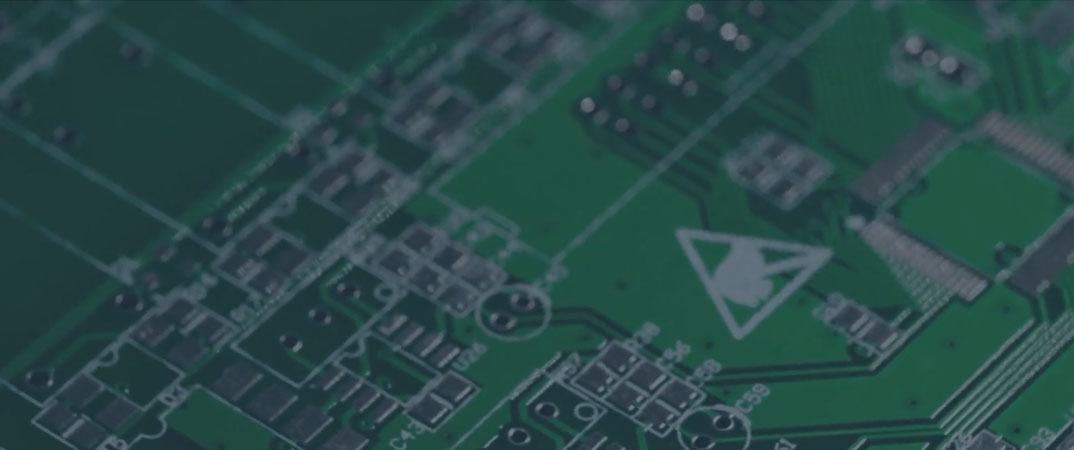
Viga Lab is a Chilean company that creates IIoT platforms that link businesses to their equipment. The solution visualizes, analyzes, and acts on the performance of the factory’s operations.
Its sensors check to see whether machines are working and at what capacity and are compatible with both digital and analog machinery. The software provides a web interface where users can monitor their equipment. It also supports several protocols, such as Modbus and EtherNet/IP.
Wireless Smart Sensors by Haris Digital
Haris Digital is a Hungarian firm that develops intelligent sensing solutions for real-time monitoring of manufacturing equipment. The firm offers wireless sensors that utilize Bluetooth Low Energy (BLE) to collect and transmit machine data.
Machines are monitored using sensors, which capture their movements and vibrations and provide insights into the machinery’s status. This data is used to create a predictive maintenance plan. The sensors are compatible with different machines, such as CNC lathes and 3D printers.
5. Immersive Technology
The fact that a variety of assembly processes still need the help of humans stems from the complexity of flexibility required for the operations. This raises the consideration of human error in industrial plant calculations.
Although instructional manuals and quality criteria are physically accessible, it is inconvenient to refer to them during assembly lines, raising the chance of mistakes.
Augmented reality (AR) technologies provide a solution by projecting instructions, quality criteria, and product illustrations being assembled directly onto the operator’s field of view. This allows them to work more efficiently and with fewer errors.
There’s much hype around VR, and one way it will be used is in the training sector. VOR can show 3D representations of equipment that are in actual proportion. This allows for instruction on repairing and maintaining machinery by utilizing step-by-step visuals.
Immersive technology also lets skilled personnel from other areas train new staff virtually. Through avatars, they can assist and answer queries in real-time. This is a benefit, particularly for businesses with multiple locations.
AR-based Training Solutions by Keon Digital
Keon Digital is a UK-based company that offers bespoke AR solutions for businesses to offer faster knowledge, modernized training procedures, and product demonstrations.
AR for manufacturing provides a better method of communicating and delivering consumable work instructions by overlaying digital content onto real-world equipment.
Keon’s software creates accurate 3D models so that workers can view information about the product they are working on. These models can be viewed on mobile devices and HoloLens headsets.
Virtual Prototyping by Weviz
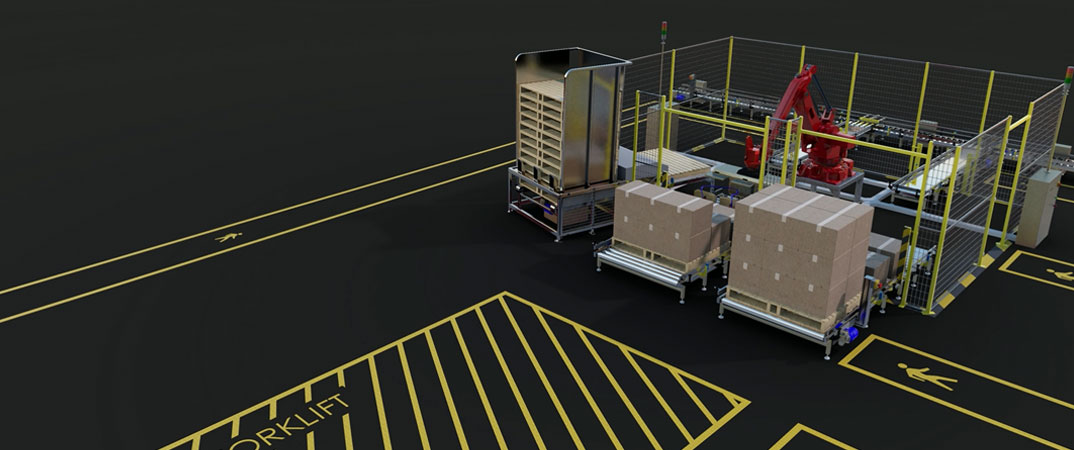
Weviz is a French firm that creates 3D real-time collaborative visualization software for industrial purposes. The Weviz VR virtual prototyping tool generates 1:1 VR models to verify the design and guarantee product safety before production.
Weviz Review is a real-time review platform where designers collaborate with stakeholders such as manufacturing and marketing teams. The software detects potential issues early on and makes changes before production, saving time and money.
The construction of a virtual prototype is less time-consuming as it does not require expensive tooling. In addition, the Weviz Studio program validates and examines models in real-time with actual materials, physical limitations, and realistic lighting conditions. These methods save time and money by eliminating superfluous prototyping activities for validation.
6. Big Data and Analytics
The process of recording and keeping data is crucial to ensure adaptability in manufacturing systems, from raw material management to maintenance schedule planning. Information on assets, supplies, operations, and consumer comments are all housed in various formats and protocols in a manufacturing firm’s data.
The conventional techniques for handling data aren’t efficient for predictive or advanced analytics because of the sheer scale and variety of the data. This is where big data comes in. Big data is a term for data sets that are so large or complex that traditional data processing applications are inadequate.
Big data analytics examines large and varied data sets, such as sales transactions, product reviews, social media posts, and sensor data.
Key Manufacturing Data Indicators are tracked by Technotery.

Information technology (IT) solutions from Technotery are available to businesses in various vertical industries. Its software converts raw data from several sources within the manufacturing plant into a consumable form. This information is fed into data visualization and business intelligence tools, resulting in a better knowledge of operational data.
Key Data Indicators (KDI) is a metric that allows businesses in the manufacturing sector to find hidden trends and patterns from massive amounts of data. The solution’s drag-and-drop interface makes it easy to create, track and share KDIs. It also has a social media integration that lets users post updates about their company’s performance.
7. Cloud Computing
The data that IoT devices gather from industrial processes have the potential to revolutionize manufacturing procedures. In the traditional system, all data processing and analysis activities are performed on in-house hardware and servers.
This increases the cost of setting up and maintaining costly IT infrastructure and restricts access to data to remote employees. Cloud-based solutions eliminate the need for on-premises hardware and make data accessible anywhere.
Cloud computing is a well-known manufacturing practice that allows on-premises users and remote workers to interact in real-time. This technique of production improves manageability while also reducing network upkeep.
Cloud-based Asset Management Solutions Provided by Hefx
Hefx is a Brazilian firm that provides cloud software for managing assets and production line maintenance operations. The solution is an entirely online asset management system that gathers machine data and analyzes it on the cloud platform.
This software utilizes this information in planning activities, preventative maintenance, and setting calibration calendars to help avoid equipment and machinery stoppages and repair downtime. The solution extends equipment life by maintaining a rigorous maintenance schedule and performing preventative repairs without the need for onsite IT infrastructure.
Distributed Cloud Infrastructure Built by Ridge
Ridge is a US-based company that creates an Application Programming Interface (API) that connects all components in a distributed cloud infrastructure. The API platform allows integration with any hybrid or multi-cloud compute environment.
Ridge’s solution will enable facilities in different locations to have dependable, low-latency access to the cloud. Even in the most distant places, the data is available in real-time. This makes it possible to monitor and optimize processes from a central location. The API provides access to all of Ridge’s distributed cloud infrastructure features, including storage, networking, and security.
8. 5G
IIoT demands rapid, secure, and continuous connectivity between the various pieces of equipment within a manufacturing system. The number of connected devices and their data grows, straining bandwidth availability.
In this scenario, 5G (mmWave) is a more recent generation of network technology that meets demanding requirements for high-speed, dependable, and consistent connectivity. 5G (mmWave) is being developed to provide better capacity and lower latency than 4G LTE.
Smart factories, which are highly dependent on sensor technology, maybe created thanks to the 5G network’s high bandwidths, wireless flexibility, and rapid latencies. This manufacturing trend incorporates connected tools that use data to assist workers with their activities.
5G Performance Optimization Enabled by Celona
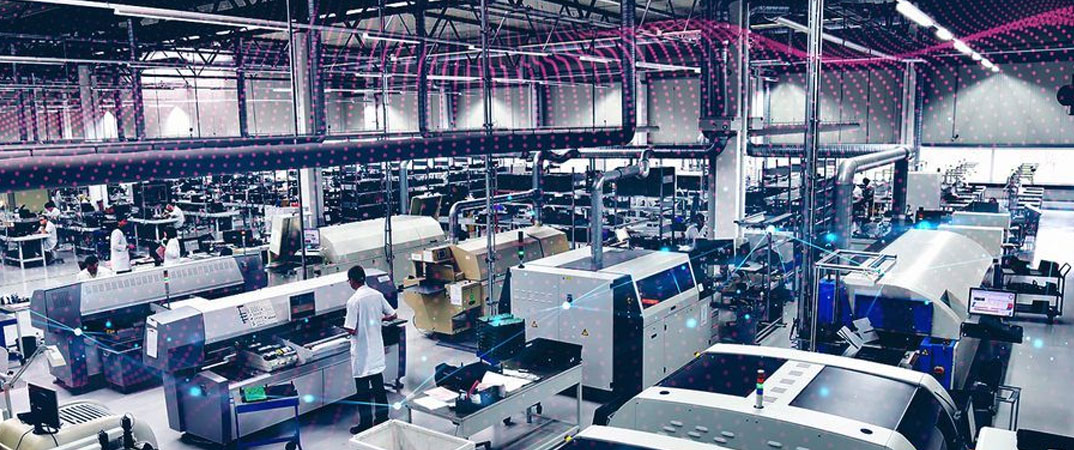
Celona is a US-based company that creates an end-to-end 5G local area network (LAN) solution that meets the demands of artificial intelligence, industrial automation, and edge computing applications.
The Celona Platform incorporates the AI-powered Celona Assistant, which recommends 5G LAN dimensioning designs depending on capacity needs and changing device requirements.
This solution also offers state-of-the-art tools for performance monitoring and optimization to ensure that the 5G LAN is continuously operating at peak efficiency.
Private 5G Networks Established by Qucell
Qucell is a South Korean firm that develops devices for creating private 5G networks in various situations, including intelligent factories and buildings. The Qucell Indoor mmWave module supports mmWave technologies and delivers high-performance indoor wireless service, allowing low-latency and high-bandwidth data transfer.
This improves manufacturing processes in intelligent factories that require real-time communication between machines. This module is designed for easy installation and can be used in any space where there is a need for a private 5G network.
Qucell’s Tele2MS is also an intelligent cell management system that can be used to deploy and configure intelligent cells rapidly. It has an easy and user-friendly interface for monitoring and managing intelligent cells. Qucell reduces capital expenditure by increasing coverage, avoiding the need for extra cells, as a result of which it increases efficiency.
9. Wearables
The human workforce, like machinery, is a manufacturing company’s most valuable asset. As a result, optimizing productivity necessitates the supervision and coordination of employees. Wearable technology such as smartwatches, smart bands, and headsets provides timely and inconspicuous information.
Wearing wearables allows workers to be safer by monitoring their movements on the shop floor. These technologies give the organizations’ workers health data, which is helpful in process enhancements and layout designs.
These solutions allow companies to monitor their employees’ health, allowing better employee care. In addition, wearables linked with AR blend real-world views with software-driven overlays to train workers on the job inside the factory.
Optimization of Worker Activity Through Motion Miners
Motion Miners is a German startup that develops algorithms for analyzing worker motion to improve production processes. It allows automated and anonymous analysis of manual labor activities concerning ergonomics and effectiveness.
Various actions are recorded anonymously by these wearables on the wrists or waists of employees. The company also provides tracers and beacons, allowing location-based services and material flow analysis. This data is used to help identify and correct inefficiencies in workflows, optimize the factory layout, and enhance employee safety.
Wearables for Worker Safety by Tended
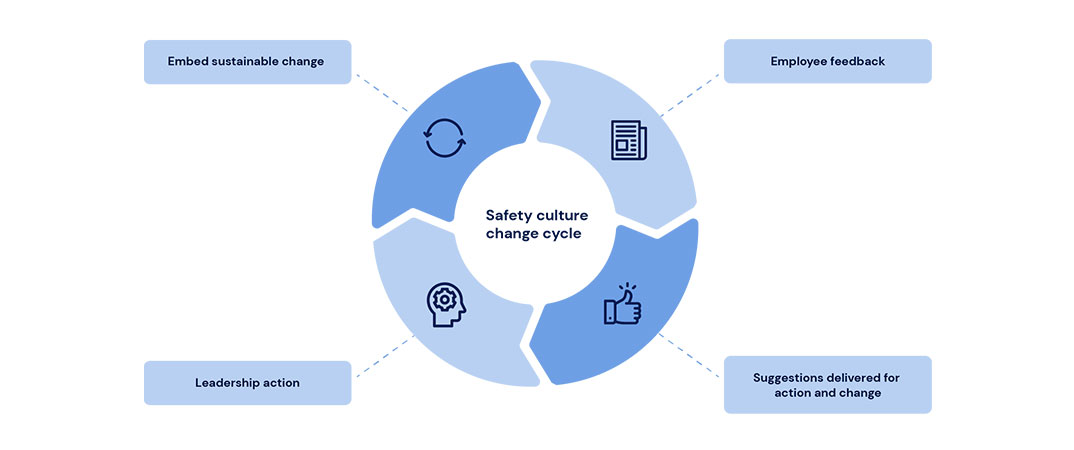
Tended is a UK-based business that creates wearable safety solutions for businesses. The wrist bands from the company use ultra-wideband technology and give accurate employee location. Tended’s hub emits vibrations to keep users at safe distances if users get too close, ensuring social space.
The wearable sensors detect excursions, falls, or collisions, and they regularly track the employee’s movement. The wearable also has a panic alarm that activates if motion is detected. In an emergency, the wearable gives employees a panic alarm to notify management.
Real-time monitoring of employee safety and workplace hazards detection with this technology can help avoid accidents and save lives.
10. Green Manufacturing
The increase in global temperatures is linked to each stage of the industrial revolution. The unchecked construction of factories and the inefficient use of resources in the early stages of each industrial process has caused irreversible damage to the environment.
As a result, industry 4.0’s innovative technologies do not have a free ride when using resources. This is why manufacturers turn to sustainable materials, energy, and manufacturing methods to minimize their environmental effects. As a result of this, green technologies are becoming increasingly important within manufacturing.
These long-lasting, eco-friendly solutions make the end product environmentally friendly while ensuring durability and circularity.
Sustainable Additive Solutions Manufactured by 4D Pioneers.
3D Pioneers is a French firm that uses additive manufacturing of high-performance materials to develop more environmentally friendly goods. The company employs its organized development approach while selecting the appropriate modeling, materials, and printing technologies for manufacturers.
The procedure compares materials to pick the one with the most outstanding performance and longevity while having the fewest environmental effect. The printing technique significantly impacts material selection’s ability to maintain sustainability, and the correct printing process ensures a sustainable flow in the manufacturing process.
4DPioneers reduce the manufacturing contribution to environmental pollution by making decisions based on a green future.
Green and Functional Nanonmaterials Produced by Skynano

Skynano is a US-based cleantech firm that uses carbon emissions as a chemical feedstock to produce high-value functional materials. Its proprietary technology allows commercialized carbon conversion technologies using secondary material from greenhouse gas emissions.
The process developed by the startup, which is based on electrochemistry, creates an efficient way to convert atmospheric CO2 into nanomaterials. The company produces various products, including graphene, carbon nanotubes, and other nanomaterials, with a wide range of applications. Skynano’s products are used in solar cells, batteries, water filtration, and sensing applications.
Find More Manufacturing Technologies & Startups
In a manufacturing business, the Top 10 Manufacturing Trends improve operational efficiency, decision making, and implementation of sustainability practices. Collaborative robots, autonomous mobile robots, intelligent factories, and other automated equipment boost productivity while lowering labor costs.
New design possibilities are now conceivable due to the advances in additive manufacturing. IIoT solutions and platforms allow for real-time monitoring of assets and enhanced shop floor visibility to senior management. AI algorithms use IIoT data to discover hidden patterns and speed decision-making processes. In addition, immersive technology and wearables improve worker productivity and safety.
This study only scratches the surface of trends we discovered during our in-depth analysis. Advanced manufacturing processes and sustainable manufacturing will transform various industries as we know them today, among other things.
Identifying new possibilities and cutting-edge technologies to integrate into your business early on can assist you in gaining a competitive advantage. Get in touch with us at any time to thoroughly investigate critical technologies and startups that are relevant to you.
If your manufacturing business is in need of modern technologies and growth, we will be glad to provide a Free IT Consultation.
Get with our Company managed IT solutions for manufacturing industry in Houston.
